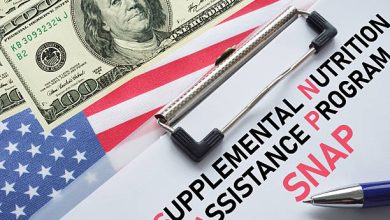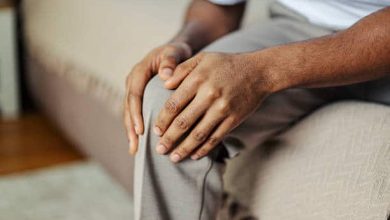13 Worst Pieces of Health Advice You Should Never Follow – BlackDoctor.org


When it comes to health, everyone seems to have an opinion. Friends, family, and social media “gurus” may offer advice that sounds good on the surface but can actually harm your body in the long run. Not all health tips are created equal—and some are downright dangerous.
We’ve taken a look at some of the most repeated pieces of health advice and found 13 of the worst pieces of advice you should never follow, along with the reasons they’re harmful and what you should do instead. Take a look; you’ve probably heard some of these before, and even thought these might have been helpful–but you’d be wrong.
13 Worst Pieces of Health Advice You Should Never Follow
1. “Skip breakfast to lose weight.”
Why it’s bad: Skipping breakfast can slow your metabolism, increase cravings, and cause overeating later in the day.
Better advice: Start your morning with a balanced breakfast including protein (eggs, Greek yogurt), healthy fats (nuts, avocado), and complex carbs (oats, whole-grain toast) to stabilize blood sugar.
2. “Carbs are bad for you.”
Why it’s bad advice: Carbs are your body’s main energy source. Cutting them entirely can lead to fatigue, poor focus, and nutrient loss.
Better advice: Focus on complex carbs like brown rice, quinoa, beans, and sweet potatoes. Limit refined carbs (soda, white bread, pastries).
3. “If it’s natural, it must be safe.”
Why it’s bad advice: Natural doesn’t always mean harmless—poison ivy and arsenic are natural too. Some herbs and supplements interact with medications.
Better advice: Do your research, check for FDA or third-party testing labels, and consult your doctor before starting new supplements or remedies.
4. “You don’t need sunscreen if it’s cloudy or you have darker skin.”
Why it’s bad advice: Yes, it’s true, “the darker the berry, the sweeter the juice” but that has nothing to do with skin cancer. Up to 80% of UV rays penetrate clouds, and skin cancer can affect all skin tones. Darker skin may have more melanin but is not immune.
Better advice: Use broad-spectrum SPF 30+ daily, even on cloudy days. Reapply every two hours when outdoors.
5. “Detox teas and cleanses will reset your body.”
Why it’s bad advice: If I had a dollar for every time I saw an ad on social media for a detox, I’d be rich. Your liver and kidneys already handle detoxing. Teas and cleanses often cause dehydration and nutrient imbalances.
Better advice: Support your body’s natural detox by staying hydrated, eating fiber-rich foods, sleeping well, and limiting alcohol.
6. “Starve yourself to lose weight quickly.”
Why it’s bad advice: Severe calorie restriction slows metabolism, weakens muscles, and leads to nutrient deficiencies.
Better advice: Aim for a sustainable calorie deficit with whole foods, regular meals, and exercise. Slow, steady weight loss (1–2 lbs per week) is healthier and long-lasting.
7. “All fats are unhealthy.”
Why it’s bad advice: Your body needs healthy fats for brain function, hormones, and vitamin absorption. Avoiding all fats can harm health.
Better advice: Include unsaturated fats from avocados, olive oil, fatty fish, nuts, and seeds. Limit trans fats and heavily processed oils.
8. “Don’t lift weights—you’ll get bulky.”
Why it’s bad: Most people can’t bulk up without specific training and diet. Avoiding weights means missing out on strong bones, lean muscle, and faster metabolism.
Better advice: Add strength training 2–3 times a week to improve muscle tone, bone density, and overall fitness.
9. “You only need to drink water when you’re thirsty.”
Why it’s bad advice: Thirst isn’t always reliable—especially in older adults or during physical activity. Mild dehydration can still impact mood, focus, and energy.
Better advice: Drink water consistently throughout the day. A general guideline is 8 cups (2 liters) daily, more if you’re active or in hot weather.

10. “You’re only gonna get sick if you get a vaccine. You should avoid them if you’re healthy.”
Why it’s bad advice: Even healthy people can catch and spread dangerous diseases. Vaccines prevent outbreaks and protect vulnerable populations.
Better advice: Stay up to date on recommended vaccines and talk to your healthcare provider about your specific needs.
11. “Going gluten-free is healthier for everyone.”
Why it’s bad advice: Unless you have celiac disease or gluten sensitivity, avoiding gluten can reduce fiber and nutrient intake. Many gluten-free products are highly processed.
Better advice: Stick with whole grains like oats, quinoa, and whole wheat unless you’re medically advised to go gluten-free.
12. “If you’re not sick, you don’t need checkups.”
Why it’s bad advice: Now, I know there’s a saying going around that says, “If you want to be healthy, stay out of the hospital” — and to some extent that is true. But any conditions (like high blood pressure or diabetes) develop silently. Skipping checkups can delay treatment.
Better advice: See your doctor regularly for preventive care, screenings, and lab work—even if you feel fine. And monitor things on your own. There are so many trackers that can check your blood pressure, BMI, cholesterol, etc to make sure you’re on point in between check ups.
13. “No pain, no gain.”
Why it’s bad advice: I’m not going to lie, I used to believe this one too. I used to think that the more it hurts, the better I’ll be in the long run–wrong. Pain signals injury or strain. Pushing through pain can cause long-term damage.
Better advice: Differentiate between discomfort (muscle burn, effort) and actual pain (sharp, stabbing, lingering). Modify or stop exercises when pain arises.
Health misinformation spreads fast—and following the wrong advice can do real damage. Always consider the source, question quick fixes, and consult medical professionals when in doubt. True health comes from balance, consistency, and evidence-based practices—not shortcuts or fads.




